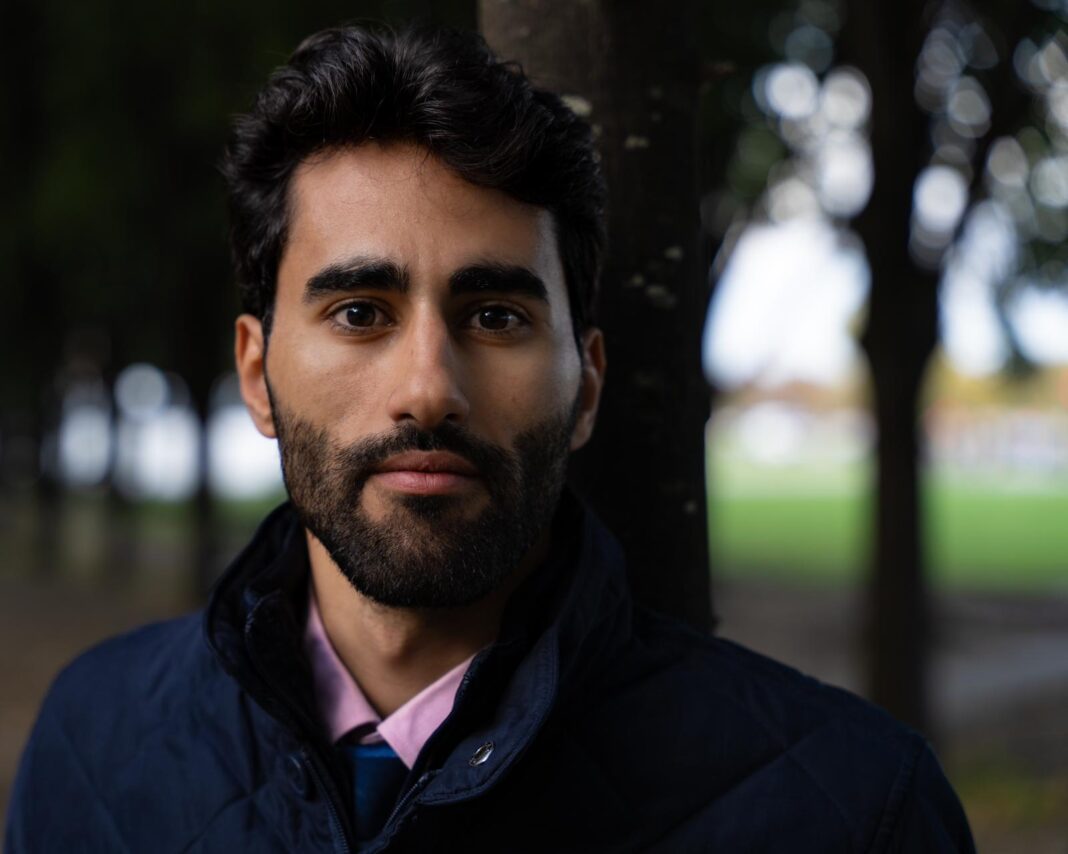by Ambra Visentin
Cover image by Sami Darwich
In October 2022, a French court issued arrest warrants for four senior Syrian commanders for war crimes against civilians. Among these was Salah Abou Nabout, a French-Syrian who was killed in a barrel bomb attack. This was one of the weapons used indiscriminately by the Syrian regime against the population. His son, now a trainee diplomat and ‘adopted’ Parisian, Omar Abou Nabout (27), has long fought to make those responsible for his father’s death answer for their crimes. This led to the first trial of senior members of the Syrian government for alleged complicity in war crimes in a military operation, and the first direct indictment of four Syrian military officers, including two former defence ministers.
Shortly afterwards, in mid-November, France issued a historic arrest warrant for Syrian President Bashar al-Assad, accusing him of crimes against humanity for the sarin gas attacks in Eastern Ghouta in the summer of 2013. But the process has already hit a snag, with the anti-terrorism prosecutor’s office asking for the case to be re-examined. The risk, says Nabout, “is that we will find ourselves in an even more dangerous situation, not only for the Middle East, but also for Western values and principles, for universal human rights.”
What is the current situation in Syria?
“The population has suffered all the misfortunes of the world. We are talking about economic, psychological, social, institutional, political and all kinds of humanitarian crises. The Syrian people had to leave Syria because there is no infrastructure, no public services, there is nothing, because there is still a military police regime that controls them, poisons them and tortures them. The only hope of the Syrian people right now is to flee.”
Has the arrest warrant against Assad slowed down the process of normalising relations?
“The arrest warrant against Bashar al-Assad is historic. The decision was very effective in preventing Bashar al-Assad from travelling to Abu Dhabi for the elections. But the PNAT in Paris (The Prosecutor General’s Office for Terrorism and International Crime, ed.) recently delayed the arrest warrant and its validity of the arrest warrant because he is a sitting president and has diplomatic immunity. There will be some sort of appeal against the arrest warrant issued by the Court.
I hope that the Court of Appeal in Paris will continue to work to convict and uphold the arrest warrant against Bashar al-Assad. Because it is essential to prevent any normalisation of relations between the Syrian regime and the European states in particular. Otherwise, we will find ourselves in an even more dangerous situation, not only for the Middle East, but also for Western values and principles, for universal human rights.”
Let me return for a moment to your personal history. Were there political motives behind the attack that killed your father?
“My father was interested in politics in the 1990s. Many years later, when he was imprisoned and later when he was the victim of the attack on his palace, it was not for political reasons. It was a military strategy: to torture the civilian population, to make them suffer, to push them to the limit, to turn them against those who wanted a revolution.”
How has your family’s experience influenced your career choices?
“I was a professional footballer in Syria. I wanted to continue my career in France, a Country I loved. I also had a high school diploma in science, and before the revolution I wanted to become a computer engineer. The revolution started in Daraa, right in my neighbourhood. From the age of fifteen, I was very aware of what was happening. I took part in the demonstrations and tried to help the wounded. Then I turned to journalism. I collected material on human rights violations and sent it to television stations with commentaries. I wanted the world to know what was going on in Syria. And after experiencing the war, especially because I filmed the bombings and knew how extreme they were, I said to myself: What can I really do, where can I make a difference? Diplomacy. I believe that conflicts and wars can always be resolved through dialogue.”
Does the war between Israel and Gaza show the world the limits of current diplomacy? How can they be overcome?
“International organisations, the EU and especially the Security Council have a very clear mission, in the case of the latter, enshrined in the UN Charter: to make peace. Unfortunately, we have five permanent veto-wielding Countries on the Security Council, and they play with it according to their interests and diplomatic perspectives. In the case of Syria, for example, we have seen Russia and China veto every step of the conflict resolution process because the UN established the Geneva process for negotiations and the creation of a Syrian constitution. And every time there has been a veto, and the Russian veto has intervened, blocking any dialogue to resolve the Syrian conflict.
We saw the same thing when the Security Council wanted to refer the case of Syria to the International Criminal Court for trial of Bashar al-Assad’s war crimes. Russia always voted against that resolution. Unfortunately, it is following the same path with what is happening in the Middle East at the moment. Instead, we need to build peace and there is still a need for dialogue, which is not constructive at the moment in the Security Council. There is injustice. And I think that if there is something to be done, it is to change the way the Security Council works. France is calling for change and the inclusion of more states, especially African states. Changing the game is complicated, but that is the point. There must always be a forum for discussion and dialogue.”
To learn more, read our Syria conflict factsheet
Related articles:
-
Ecchr’s legal battles against the crimes of the Syrian regime
-
Mazen Darwish: “We will make normalisation with Assad difficult”
























